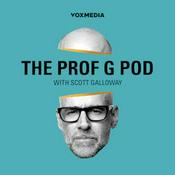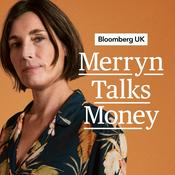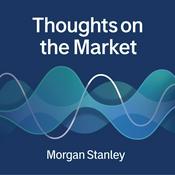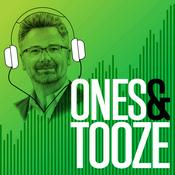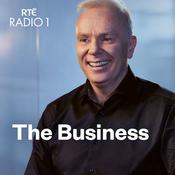102 episodes

Sustainability Will Remain the Focus
20/1/2025 | 33 mins.
With leadership in the government changing, the electric utility industry is anticipating major shifts in policy. But sustainability will continue to be a focus of the evolving electric and energy sector according to a strategic advisor for large commercial and industrial organizations looking to manage their sustainability and energy issues. In this episode of Grid Talk, we interview Drew Murphy CEO of Trio about what’s ahead for the energy industry.“There will be reversals, there will be setbacks; there will be things where we’ve moved down one path and then that stops so you have to move down another,” said Murphy. Trio was launched 9 years ago by Edison International, one of the nation’s largest utilities, to help its customers navigate the energy transition, which he believes will continue regardless of the administration change.“Sustainability and energy will continue to go hand-in-hand and we’re going to see this move forward.” Murphy says the renewable and clean energy business is constantly evolving and changing. “I think that the technological advancement that we’ve seen over the last 20 years in terms of clean energy technology advancement, how the costs have come down; how much we’ve deployed both in the U.S., and globally, I think technology is driving forward and that is something that I think will continue.”AS chief executive officer of Trio, Murphy is responsible for guiding the organization and empowering the team to help clients manage their energy choices and risks to deliver on their strategic, financial and sustainability goals. Previously Murphy was senior vice president of Strategy, Corporate Development and Sustainability for Trio’s parent company, Edison International, where he was responsible for managing the strategic planning process for the company and its subsidiaries and overseeing the analysis of emerging trends in the industry and their impact on Edison International’s regulated utility and competitive businesses.Murphy earned a bachelor’s degree from Harvard College in 1983 and a Juris Doctor from George Washington University in 1987.

Solar Power’s Growing Ag Footprint
07/1/2025 | 28 mins.
At first glance, solar energy production and livestock grazing don’t seem like they have much in common, but the two industries have formed a growing partnership with what’s known as solar grazing.This episode of Grid Talk features Nick Armentrout who is the president of the American Solar Grazing Association. Armentrout reports a steep rise in the use of livestock to graze under and around solar panel deployments in rural America.“There is vegetation in place to control stormwater. After the site is turned on and is operational, now you need to maintain that vegetation. You don’t want it to grow too tall and shade the panels and impact actual production.” said Armentrout.It’s turning out to be a win-win situation for farmers and energy producers. Instead of machinery to keep vegetation in check, farmers use the land for grazing animals.“Over 120,00 acres of solar are being grazed in the United States, so that is more than any other country that we’re aware of on the globe.” The trend benefits solar power generators, helping them maintain the land under their power assets, produces new income streams for small family farmers, and is inspiring a new generation of young farmers that want to help tackle climate change.“I think it’s a fantastic situation, I mean, we’re just scratching the surface on livestock and grazing solar and the potential benefits for the animals in the system.”

Energy Storage Moonshot
23/12/2024 | 30 mins.
Energy storage is considered the holy grail that would unlock a vast increase in solar and wind renewable electricity generation. That’s the topic for the latest episode of Grid Talk featuring Will McNamara who is a Grid Energy Policy Storage Analyst with Sandia National Laboratories.Six national energy labs and a cohort of 200 partners across the energy industry have joined together in a moonshot effort to vastly expand energy storage in America. It is all being coordinated through the National Consortium for the Advancement of Long Duration Energy Storage (LDES) technologies. “There was a proposal call issued by the Department of Energy offering funds to the national labs to create an industry forum focused on the many challenges that are facing long-duration energy storage technologies and create this forum so that the industry can come together and address these challenges,” said McNamara The goal is to boost storage technology on a large scale from about four hours duration to 10 hours.“The sun doesn’t always shine, the wind doesn’t always blow so we need to find a way to store the energy to make it dispatchable, hence the need for energy storage, so we are absolutely in this evolutionary period. We are building the constructs for the future.”In his role as Grid Energy Storage Policy Analyst for Sandia National Laboratories, McNamara focuses on energy storage policy development at the federal and state levels. He has spent his entire 23-year career in the energy and utilities industry with a concentration on regulatory and legislative policy. Additional areas of subject matter expertise include distributed energy resources, AMI/smart grid, renewables, and competitive retail markets.McNamara has an M.B.A. from University of Phoenix, an M.A. in Mass Communications from the University of Iowa, and a B.A. in Political Science and Journalism from the University of Iowa.

Stanford’s Uncommon Dialogues
19/12/2024 | 25 mins.
Solar siting, the future of hydroelectric dams, and grid transmission buildout have been some of the most contentious and important areas needing attention as the U.S. builds out the electric grid of tomorrow. In this episode of Grid Talk, host Marty Rosenberg interviews Dan Reicher who is a former Assistant Secretary of Energy and is associated with the Stanford Doerr School of Sustainability, as well as Dartmouth’s Irving Institute for Energy and Society.The discussion centers on a program at Stanford called Uncommon Dialogues which aims to sort out divisive issues and make progress solving them.“I started to look into this Uncommon Dialogue program, and I was really quite intrigued given the difficulties we have in resolving some of today’s big energy, climate and environmental issues,” said Reicher.The idea is to get opposing parties together at least once and see if there’s any interest in really trying to resolve some of their big differences.“I think we’ve got a good process, and we’ve tested it now in both hydropower and big solar, and I think it could work well on a lot of other issues. We got some of the biggest solar developers in the United States to sit down with some of the big environmental groups including The Nature Conservancy, the largest U.S. conservation group, and with tribal representatives and a whole host of others.”The result was the groups bought in on an agreement about how to proceed.“We’ve been moving forward ever since to really try to improve the way we site, operate, and transmit the power from these big solar projects, often measured in the hundreds and hundreds of megawatts and some of them approaching 1,000 megawatts.”Dan Reicher is a former Assistant Secretary of Energy in the Clinton Administration. Mr. Reicher is currently attached to the Stanford Doerr School of Sustainability. Mr. Reicher joined Stanford in 2011 as the executive director of Stanford's Steyer-Taylor Center for Energy Policy & Finance. Before joining Stanford, he was the Director of Climate Change and Energy Initiatives at Google.Mr. Reicher holds a B.A. in biology from Dartmouth College and a J.D. from Stanford Law School.

Transmission and the Onrushing Energy Transition, The View from Kansas
01/11/2024 | 27 mins.
Kansas, in the heart of America’s robust wind belt, has approved a new direct current transmission corridor to help speed the transition to cleaner energy. In this episode of Grid Talk, host Marty Rosenberg talks with Andrew French, the chairman of the Kansas Corporation Commission.“Kansas actually approved a permit for the Grain Belt Express DC line to extend all the way across our state and all the way to Indiana,” said French.It comes at a time of increased demand for energy - particularly non-carbon emitting sources. French acknowledges that navigating the regulatory and permitting process is difficult.“Right now, you’re looking at a few years to get new generation online and it’s a tough spot. You’ve got a lot of customers that want power.”“This is a complex industry even for developers that are very sophisticated. As they’re developing a wind farm, a solar farm, some other generation source, it’s really hard for them to anticipate how much it’s going to cost for them to interconnect,” the Kansas regulator said. He’s also optimistic about the future.“There are a lot of things moving in the direction of a successful energy transition. There are also a lot of things standing in the way or complications. There is of course, public sentiment that doesn’t understand some of the reasons why we may have need to build new infrastructure and transition to different resources.”Andrew J. French was appointed to the KCC in 2020. He has served as Chairperson since 2021.French currently serves as the Kansas representative to the Southwest Power Pool and regularly participates in various SPP stakeholder groups. He is also one of 10 state utility regulators selected to serve on the Joint Federal-State Task Force on Electric Transmission formed in 2021.Before his appointment to the KCC, French practiced law with a focus on energy policy and the regulation of utility rates and services. French has a Bachelor of Arts degree in Environmental Studies from the University of Kansas and a Juris Doctor degree from the University of Kansas School of Law.
More Business podcasts
Trending Business podcasts
About Grid Talk
Listen to Grid Talk, Unhedged and many other podcasts from around the world with the radio.net app

Get the free radio.net app
- Stations and podcasts to bookmark
- Stream via Wi-Fi or Bluetooth
- Supports Carplay & Android Auto
- Many other app features
Get the free radio.net app
- Stations and podcasts to bookmark
- Stream via Wi-Fi or Bluetooth
- Supports Carplay & Android Auto
- Many other app features


Grid Talk
download the app,
start listening.






